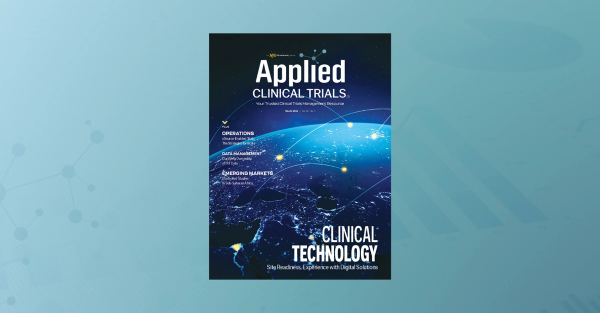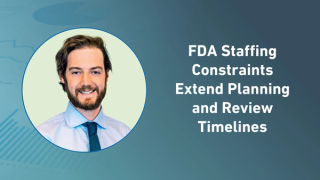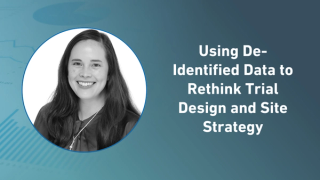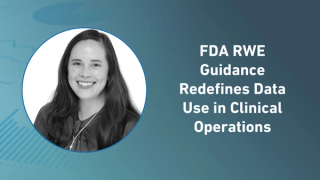
Metrics & Benchmarks
Latest News
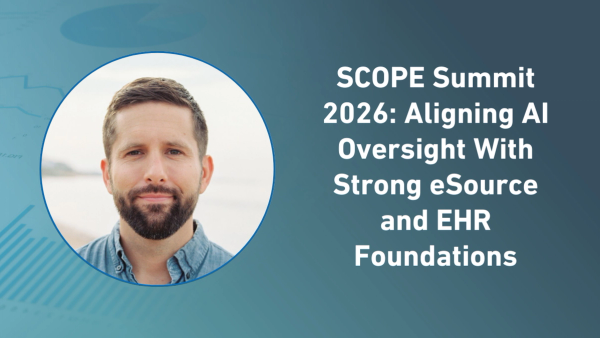
SCOPE Summit 2026: Aligning AI Oversight With Strong eSource and EHR Foundations

Thermo Fisher, Datavant Partner to Advance Real-World Data Interoperability Across Clinical Development

ACT Brief: AI Scales Trial Design, ESG Becomes a Readiness Test, and Sites Push Back on Payment Practices

SCOPE Summit 2026: How Payment Practices and Operational Burden Are Changing Site Behavior

Evinova, Bristol Myers Squibb Partner to Apply AI to Global Clinical Development

Shorts










Podcasts
Videos
All News

In today’s ACT Brief, we highlight how purpose-driven efficiency is reshaping clinical development priorities, where leaders see the greatest opportunity for accelerating trial timelines, and how artificial intelligence is already influencing decisions across the R&D lifecycle.

Otis Johnson, PhD, MPA, founder and principal consultant at Vantix Operations, discusses why suppliers must shift from ESG activity to decision-grade evidence, and how embedding sustainability into clinical research quality could reshape sponsor expectations, oversight, and supplier selection in the years ahead.

Individual-level attribution modeling reveals that real-world semaglutide effectiveness is not a fixed property of the molecule, but an interaction between pharmacological exposure and modifiable care and support conditions, carrying implications for real-world evidence interpretation and clinical development.

Raja Shankar, VP of machine learning at IQVIA, discusses which AI capabilities sponsors are most likely to adopt first to streamline trial workflows and reduce operational burden, while also highlighting emerging applications that could shape the next phase of clinical trial design.

As clinical trials grow more global and complex, AI is emerging as a practical enabler of smarter financial management by automating manual processes, improving visibility across fragmented systems, and helping sponsors, CROs, and sites reduce delays, errors, and operational friction.

Jeremy Wyatt, CEO, Ametris, discusses how operational best practices for integrating wearables into oncology trials center on minimizing patient burden through thoughtful workflow design, careful device selection, and early planning to ensure digital measures fit the realities of complex patient populations.

Charlie Paterson, partner at PA Consulting, explains how mixed signals on FDA risk tolerance are accelerating the globalization of clinical trial programs and reshaping how sponsors align development activities worldwide.

Industry leaders emphasized that accelerating clinical research must go hand in hand with sustained, community-driven strategies to advance diversity, equity, and inclusion in clinical trials.

Miriam Dervan, founder & CEO of mdgroup, explains how treating patient experience as a strategic investment—rather than a secondary consideration—changes how sponsors, sites, and operational teams design and deliver clinical trials.

Mike Wenger, chief innovation officer at CRIO, discusses how different site types—from academic medical centers to independent research sites—require distinct eSource approaches, and why aligning technology with site workflows is critical to study execution.

Industry leaders explore areas of opportunity for acceleration as well as how early-phase planning, technology, and collaboration can keep moving the clinical ecosystem forward.

Ken Getz of Tufts CSDD and Eliav Barr of Merck discuss how efficiency, public trust, and AI all fit into the current state of clinical research.

Holly Leslie, vice president of services at Ledger Run, explains why site selectivity is not yet universal, but increasingly driven by larger, more sophisticated sites that are demanding stronger remuneration policies and greater leverage in sponsor relationships.

Otis Johnson, PhD, MPA, founder and principal consultant at Vantix Operations, discusses how ESG is evolving from a reporting exercise into an auditable measure of operational readiness, and what that shift means for sponsor expectations, vendor qualification, and supplier governance discipline.

Raja Shankar, VP of machine learning at IQVIA, explains how AI-driven trial simulation and automation are beginning to influence decision-making across every phase of clinical development.










